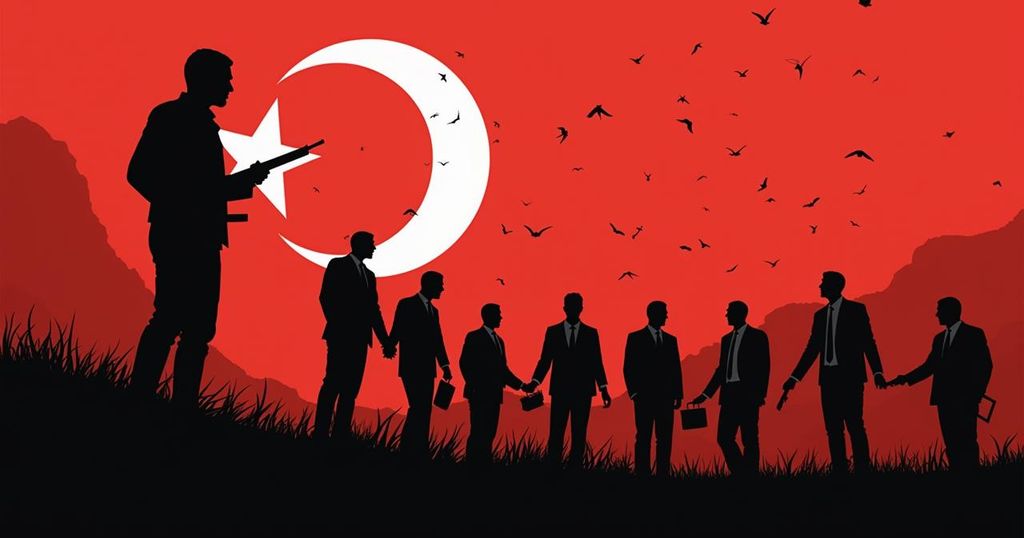Concerns Arise Over Repression in Tunisia Following Saied’s Low Turnout Victory
Kais Saied, the incumbent president of Tunisia, achieved a controversial victory in the recent presidential election, garnering 90.7 percent of the votes amid a low turnout of 28.8 percent. Critics allege that the election was marred by repression and electoral manipulation, leading to significant concerns over the state of democracy in Tunisia. With accusations of a rigged process and ongoing suppression of dissent, observers worry that Saied’s renewed mandate will lead to further oppression rather than the democratic reforms long sought by citizens.
The recent presidential election in Tunisia has resulted in President Kais Saied securing a staggering 90.7 percent of the votes; however, this outcome is accompanied by an alarming turnout rate of only 28.8 percent. This disparity signals profound divisions within the country as many citizens express discontent regarding Saied’s governance, particularly following a series of controversial actions that critics argue have undermined democratic processes. The election was marred by significant judicial disputes and allegations of electoral misconduct, further amplifying concerns about the integrity of Tunisia’s democratic principles. Saied’s victory follows a tumultuous period marked by public unrest and accusations of his administration’s repressive tactics aimed at stifling dissent and silencing opposition voices. Notably, prior to the election, multiple political adversaries were incarcerated or prevented from contesting, raising serious questions about the fairness of the electoral process. Human Rights Watch’s Bassam Khawaja remarked on the concerning backdrop of the election, stating, “It’s clear that democracy in Tunisia is in a complete backslide.” Following the announcement of election results, Saied proclaimed, “This is a continuation of the revolution. We will build and will cleanse the country of the corrupt, traitors and conspirators,” suggesting a possible intensification of the crackdown on opposition groups. The electoral process itself was heavily criticized due to the disqualification of most candidates, with only three, including one already imprisoned, allowed to run under conditions that many observers deemed unfair. Notably, the electoral authority’s decisions came under scrutiny as it exhibited clear bias favoring the incumbent. Political analysts observed that the division among opposition parties led to a low voter turnout. Many citizens faced the dilemma of supporting fragmented opposition factions or boycotting the election altogether, which facilitated Saied’s ability to rally his base without significant opposition. Moreover, the international community’s response to Saied’s re-election remains tepid, especially given the European Union’s vested interest in maintaining cooperation with Tunisia on migration control, thus diminishing the likelihood of condemnation regarding the election’s legitimacy.
In the wake of the 2011 revolution, which marked a significant turning point for democracy in Tunisia, the country has faced numerous challenges. Recently, President Kais Saied has been accused of significantly rolling back democratic advancements, which has culminated in a controversial presidential election process. Since assuming power in 2019, Saied has enacted measures perceived as increasingly authoritarian, such as dissolving parliament and restricting civil liberties, which have led to widespread public unrest and dissatisfaction. The election amid these conditions has raised critical questions about the future of democracy in Tunisia and the implications of Saied’s policies on the political landscape and civil society.
The results of Tunisia’s presidential election reveal a deeply divided nation grappling with the implications of Kais Saied’s potentially iron-fisted rule. While securing an overwhelming percentage of the votes, the alarmingly low turnout calls into question the legitimacy and public support for his administration. Critics and analysts alike fear that Saied’s mandate will embolden him to further suppress dissent and perpetuate a cycle of repression, straying further from the democratic ideals that emerged following the revolution. As international attention turns towards Tunisia, the dynamics of governance, civil rights, and political freedoms remain in precarious balance.
Original Source: www.aljazeera.com




Post Comment